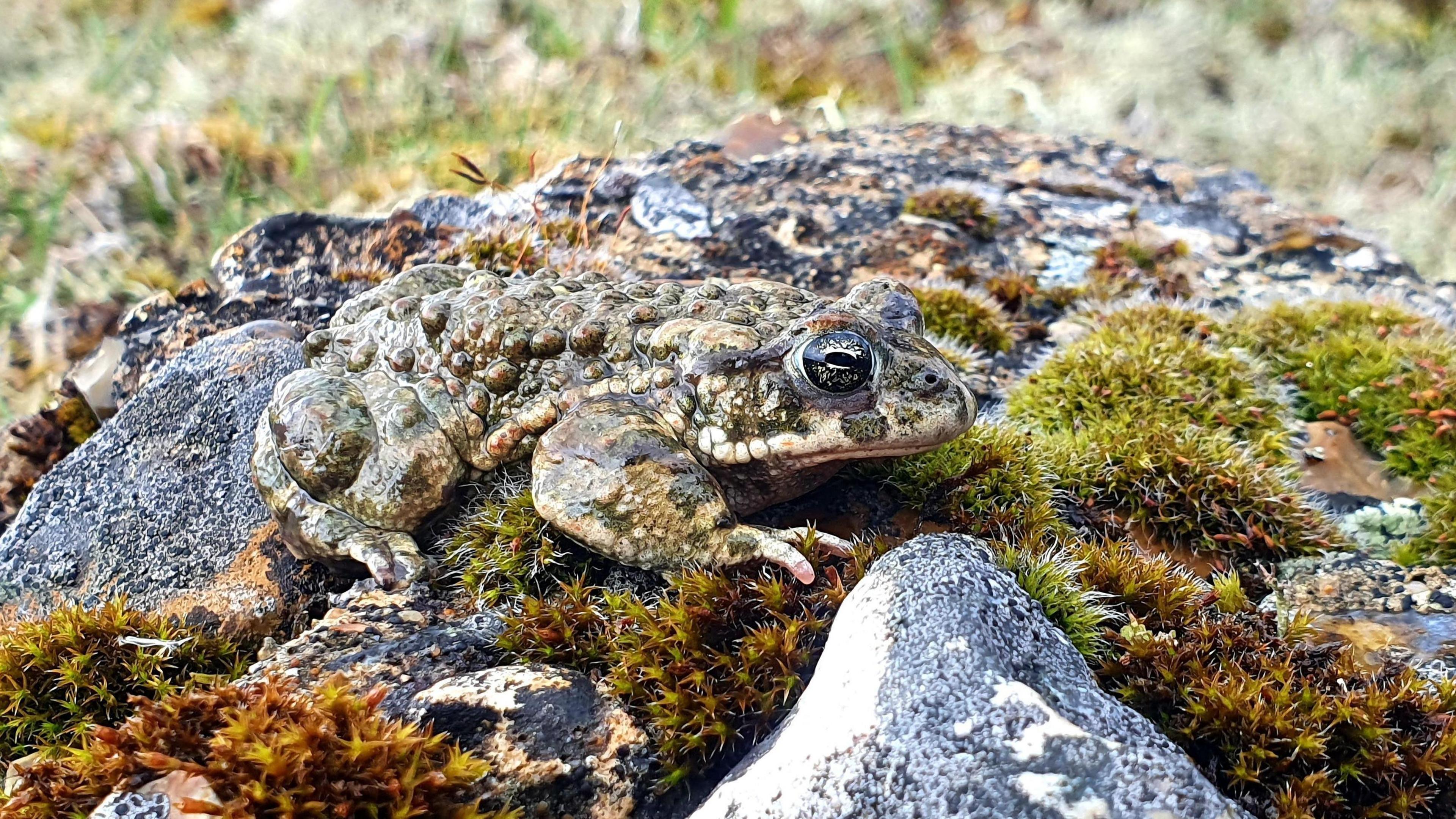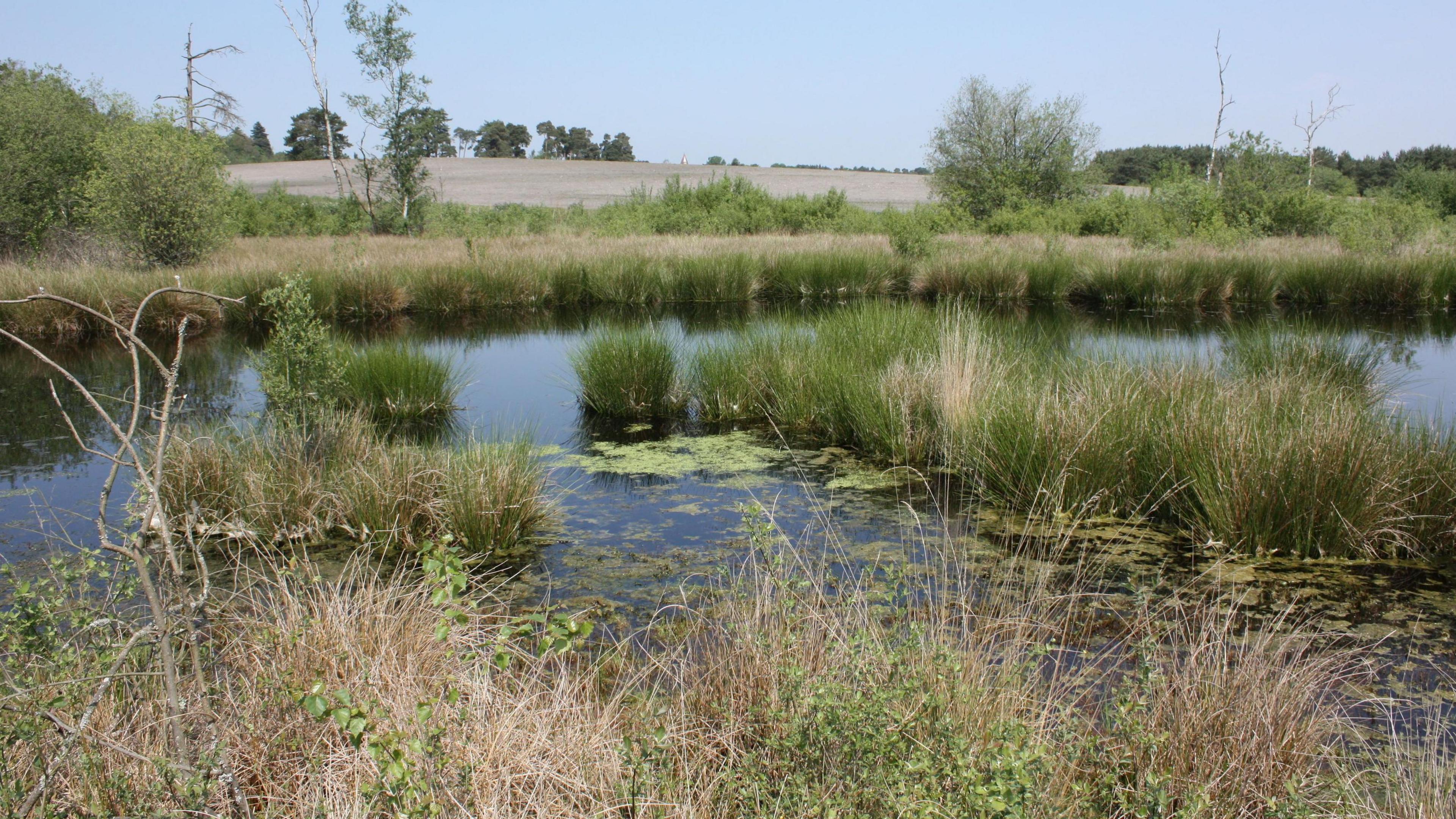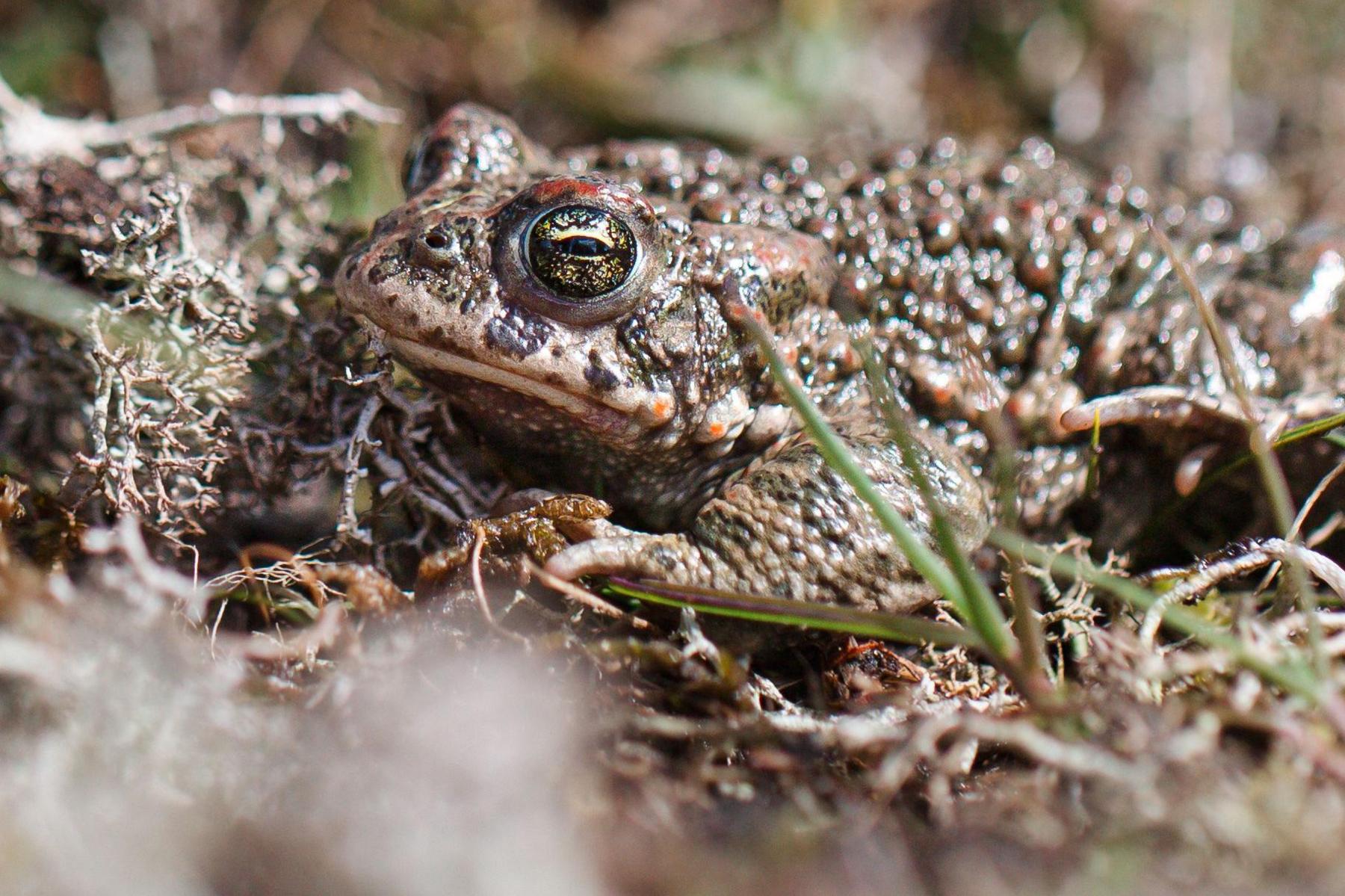Toad makes 'wonderful' comeback at national park

The toad has a distinctive rasping call that can be heard up to a mile away
- Published
The natterjack toad, the UK's loudest amphibian, has made a "remarkable comeback" at a national park following a conservation project.
A total of 28 toadlets were recently counted at Blackmoor, Hampshire, in the South Downs, following the reintroduction programme, which started in 2021.
It is the first time natterjack toads have been recorded breeding at the site in 50 years.
The toad, which has a distinctive rasping call that can be heard up to a mile away, had previously only been found on a single site in the national park at Woolmer Forest.
In neighbouring Sussex it is considered locally extinct.
The Amphibian and Reptile Conservation (ARC) charity has led work to provide new suitable territory for the toads.
This included creating shallow ponds and restoring heathlands for the introduction of cattle grazing to create "perfect conditions" for them to return.

Amphibian and Reptile Conservation has led work to provide new suitable territory for the toads
Jack Harper from ARC said: "We are delighted that everyone's hard work is beginning to pay off and that the future of this fascinating species is looking brighter in the region.
"This is a great first step to recovering the species within the national park and a good blueprint for future reintroduction efforts."
Olivia French, heathlands project team leader for the park, said it was a "wonderful success story for nature recovery" that shows "wildlife can thrive if given half a chance".
The future for natterjack toads was "certainly looking brighter than it was", she said, with a breeding population at Woolmer and now Blackmoor as well.
"This area is the last heathland bastion for this iconic species and extending their habitat range is a big step forward in stopping the species becoming locally extinct," she added.

It is the first time natterjack toads have been recorded breeding at the site in 50 years
Ms French said that 75% of breeding sites in the UK had disappeared in the past century.
The toads are now almost exclusively confined to coastal sand dune systems and grazing marshes in north-west England and the Solway Firth in Scotland.
She added: "They are one of the most at-risk species from climate change because of rising sea levels, so this makes the comeback in Hampshire all the more significant."
Get in touch
Do you have a story BBC Hampshire & Isle of Wight should cover?
You can follow BBC Hampshire & Isle of Wight on Facebook, external, X (Twitter), external, or Instagram, external.
South Downs trees at night photo wins competition
- Published10 February
Springwatch visits reserve's natterjack toads
- Published29 May 2024
Rare toads need urgent help, RSPB says
- Published25 September 2023
Related internet links

Sign up here to receive our weekly newsletter highlighting uplifting stories and remarkable people from around the world.